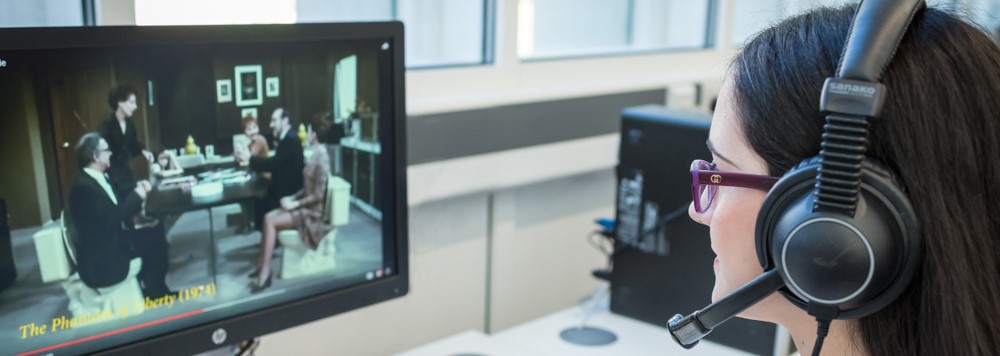Whether it is blockbuster films from Conglomerate Hollywood; independent documentaries that are distributed online; streaming platforms and services that provide competition to and new opportunities for existing content; public service broadcasting that redefines its remit; or cult television shows that are defined as much by the practices of their fans as they are by their storylines, screen entertainment media operate in ever-changing conditions of production, dissemination and consumption.
The programme aims to provide you with the opportunity to develop an in-depth knowledge of the industrial and cultural dimensions that permeate screen entertainment media. Focusing on both the historical evolution of film and television and their shifting place in contemporary screen industries and cultures, it aspires to help you understand the complexity of current media trends on a global scale while also cultivating transferrable skills related to media research, applied knowledge, real world insights and practical experience, all strongly informed by digital-led approaches and tools. Strongly interdisciplinary, the course brings together elements of film studies, media studies, communication studies, policy studies, political economy and others.
The MA provides excellent preparation for a research degree in a Department with a strongly established “Screen and Film Studies” research cluster, but it is also intended to answer the needs of students who wish to master skills and expertise as a means to building a career in the field of screen industries, and to improve employability skills for a career in the broader media and creative industries sector.
Why Communication and Media at the University of Liverpool?
Active Research Community
The Department of Communication and Media employs around 35 permanent staff who work on a wide range of interdisciplinary research on topics including: digital and social media; political communication and journalism; media history and theory; film, television and other screen entertainment media; strategic communication; cultural studies and cultural anthropology; photography; computer games; television and magazines; global entertainment, and global events. We have particularly strong specialisms in the areas of social media, screen studies, media and everyday life, and gender and sexuality, notably LGBTQ+ inclusivity across television, film, magazines and online media. Another key specialism is multimodal and critical discourse analysis, making use of large datasets and new computational and machine learning techniques to analyse communication patterns across digital platforms.
Our six master's courses draw on the expertise of our staff research groups and research centres: the Culture, Space and Memory research group and the Centre for Culture and Everyday Life (CCEL) house cultural/anthropological research around memory and material cultures, photography, everyday life, media arts, mega-events and the spatial humanities, and partners with cultural organisations such as museums and galleries; the Discourse, Data and Society research group and the Language, Data and Society (LANDS) Research Centre bring together ground-breaking work in multimodal studies, artificial intelligence and data analytics with expertise in critical discourse studies, language and argumentation; the Media, Politics and Society research group and the Centre for Digital Politics, Media and Democracy (DigiPol) respond to urgent political challenges around the spread of misinformation and ‘fake news’, online harms, digital news audiences, democratic deliberation, human rights and climate change; and the Screen and Film Studies research group and the Centre for Converged Screen Media and Entertainment (COSME) boast an unusually comprehensive approach to film and screen that includes industrial and institutional aspects, stardom and performance, and encompasses Hollywood, American independent cinema, documentary, cult television, animation and virtual reality. There are also shared themes such as populism and politics, gender and sexuality, cultural labour, digital cultures and social inequalities, in addition to the Digital Media & Society Institute (DMSI) which brings together multidisciplinary teams of researchers to explore the role and impact of digital media in society today.
These research groups, research centres and the research institute provide the foundations for our vibrant and exciting research-connected master's programmes aimed at understanding contemporary issues in communication and media studies today. We host regular research seminars in which postgraduate students are encouraged to participate.
Liverpool
What better place to immerse yourself in the subject than Liverpool, a city with a reputation as a political and creative force, with a thriving production sector and a unique cultural heritage? The Department has close links to cultural industries and venues in the city, some of which collaborate with us in offering assessed work placements as part of our programme of study.
